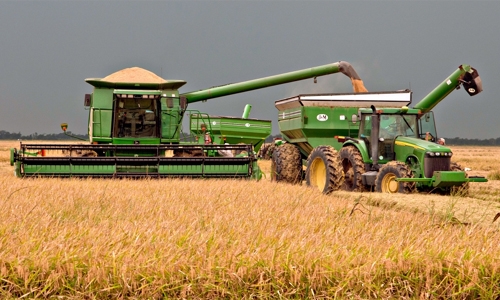China approves US rice imports
China’s customs administration announced yesterday it had approved US rice imports, a move that comes during a 90-day tariff truce between the two countries which are engaged in a bruising trade war. US rice that meets inspection and quarantine requirements will be allowed to enter the country, according to a notice released by China’s customs authority. Requirements for US rice exporters include registration with the US Department of Agriculture and adherence to US and Chinese phytosanitary laws and regulations, which are aimed at protecting against plant diseases.
The approval comes more than a year after the two countries agreed on a phytosanitary protocol that would allow US rice imports in China for the first time. According to a 2017 statement by the US Department of Agriculture, which praised the Chinese market as “an exceptional opportunity” for the US rice industry, the agreement had “been in the works for more than a decade”. US President Donald Trump and Chinese leader Xi Jinping agreed on the sidelines of the G20 summit in Buenos Aires at the start of December to a 90-day truce while they try to find a solution to the escalating trade dispute.
Trump is seeking a massive reduction in the US trade deficit with China and deeper reforms to open the economy to foreign companies. Earlier this month, China’s major state-owned grain stockpiler said it had resumed buying US soybeans, and Beijing announced it would suspend extra tariffs added to US-made cars and auto parts starting January 1. China is also targeting intellectual property theft in the country -- one of the main sticking points in the dispute with the US.
On Sunday, a meeting of the Standing Committee of the National People’s Congress (NPC, China’s legislature) saw a draft law that would allow IP theft victims to claim “punitive damages”. Maintaining and resolving the trade truce could help stabilise sentiment in China, where confidence in the economy has been hurt by the trade frictions with its key trade partner.
Related Posts

